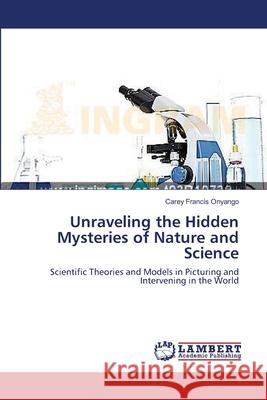Unraveling the Hidden Mysteries of Nature and Science » książka
Unraveling the Hidden Mysteries of Nature and Science
ISBN-13: 9783659625848 / Angielski / Miękka / 2014 / 220 str.
Before Aronson, Way, and Harre (1994) developed their metaphysical type-hierarchies approach (METH), Gieres (1985, 1988) constructive realism (CR) was the most explicitly realist version of the essentially pragmatical approach to scientific theories alternately referred to as the model-theoretic approach or the semantic view, and which is here referred to as the models-semantic conception (MSC). The MSC started with the set-theoretic approach of Suppes (1957, 1983a, 1983b) that the structuralism initiated by Sneed (1971) and Stegmuller takes after. Otherwise, van Fraassen (1967, 1970, 1972, and 1980) initiated the MSCs state-space approach to which Giere is sympathetic, while Suppe (1989) preferred the relational systems approach. There is a pragmatical tendency the MSC construing theories not as linguistic entities but rather more or less in terms of models. One would agree that in terms of the implications for scientific realism, that even though plausible support is not any less problematic than it would otherwise have been, the prospects are nevertheless improved.
Before Aronson, Way, and Harre (1994) developed their metaphysical type-hierarchies approach (METH), Giere´s (1985, 1988) constructive realism (CR) was the most explicitly realist version of the essentially pragmatical approach to scientific theories alternately referred to as the model-theoretic approach or the semantic view, and which is here referred to as the models-semantic conception (MSC). The MSC started with the set-theoretic approach of Suppes (1957, 1983a, 1983b) that the structuralism initiated by Sneed (1971) and Stegmüller takes after. Otherwise, van Fraassen (1967, 1970, 1972, and 1980) initiated the MSC´s state-space approach to which Giere is sympathetic, while Suppe (1989) preferred the relational systems approach. There is a pragmatical tendency the MSC construing theories not as linguistic entities but rather more or less in terms of models. One would agree that in terms of the implications for scientific realism, that even though plausible support is not any less problematic than it would otherwise have been, the prospects are nevertheless improved.











